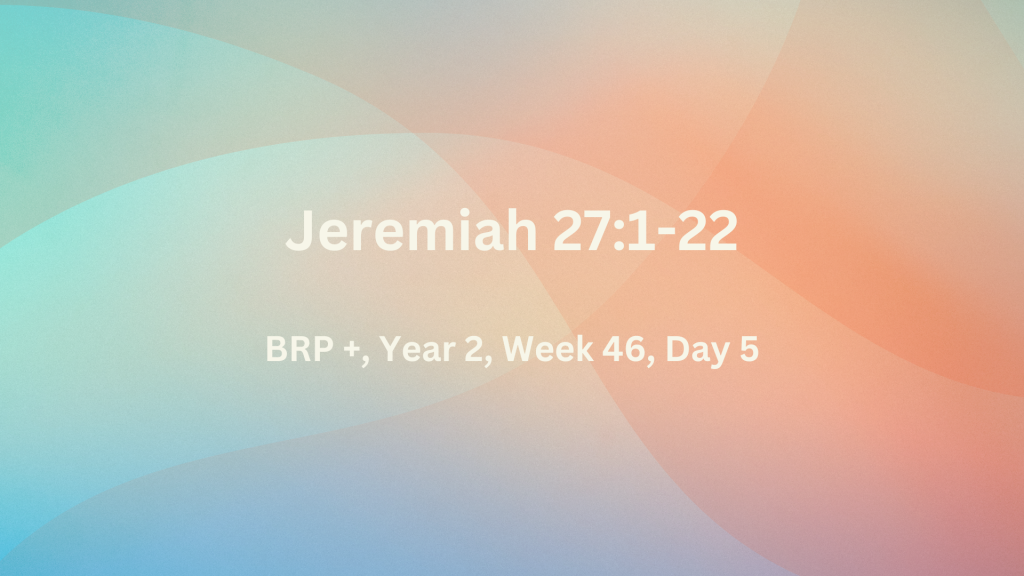Jeremiah 27:1-22
Q.1. When did Jeremiah make this prophecy? What was its substance? How far did it apply? Why? Would the Babylonian Empire survive? What choices did God offer? – (Jer.27:1-11)
Jeremiah made this prophecy during the reign of King Zedekiah, the last king of Judah, before Judah’s deportation to Babylon (Jer.27:1). Jeremiah was to – make for yourself bonds and yokes and put them on your neck (Jer.27:2). He was to send a solemn message to the envoys of Edom, Moab, Amnon, Tyre, and Sidon, who had come to Jerusalem (Jer.27:3). He was to remind these nations that God was the One Who established, and Who put an end to kingdoms – I have made the earth, the men and the beasts which are on the face of the earth by My great power and by My outstretched arm, and I will give it to the one who is pleasing in My sight (Jer.27:5). More specifically, God declared – All the nations shall serve him [Nebuchadnezzar] and his son and his grandson until the time of his own land comes; then many nations and great kings will make him their servant (Jer.27:7). Those resisting the king of Babylon would be destroyed, and those submitting to his rule would stay in their territories (Jer.27:8-11). Therefore, they should not listen to the false prophets and soothsayers (Jer.27:9). However, even Babylon would survive only – until the time of his own land comes; then many nations and great kings will make him their servant (Jer.27:7).
Q.2. What was the common prophecy about Nebuchadnezzar? Did these messages come from God? What specific judgment would expose the falsehood of the prophets? – (Jer.27:9-22)
Judah had an abundance of false prophets claiming to speak for God. They claimed that Judah would not be conquered by Babylon. However, Jeremiah was to tell the people of Judah – 14 So do not listen to the words of the prophets who speak to you, saying, ‘You will not serve the king of Babylon,’ for they prophesy a lie to you; 15 for I have not sent them, declares the Lord, but they prophesy falsely in My name, in order that I may drive you out and that you may perish, you and the prophets who prophesy to you (Jer.27:14-15). He predicted that Babylon would confiscate the sacred vessels in the house of the Lord (Jer.27:16-18). Jeremiah used this prophecy to be a test of the genuineness of these other prophets – if they are prophets, and if the word of the Lord is with them, let them now entreat the Lord of hosts that the vessels which are left in the house of the Lord, in the house of the king of Judah and in Jerusalem may not go to Babylon (Jer.27:18). He then spelled out the future of these sacred treasures – They will be carried to Babylon and they will be there until the day I visit them,’ declares the Lord. ‘Then I will bring them back and restore them to this place (Jer.27:22). God’s ‘prophet of doom’, when bound and carrying a yoke on his neck, was easy ridiculed by the false prophets. However, Jeremiah had the truth on his side. (c.f. Jer.27:1 & 22).

